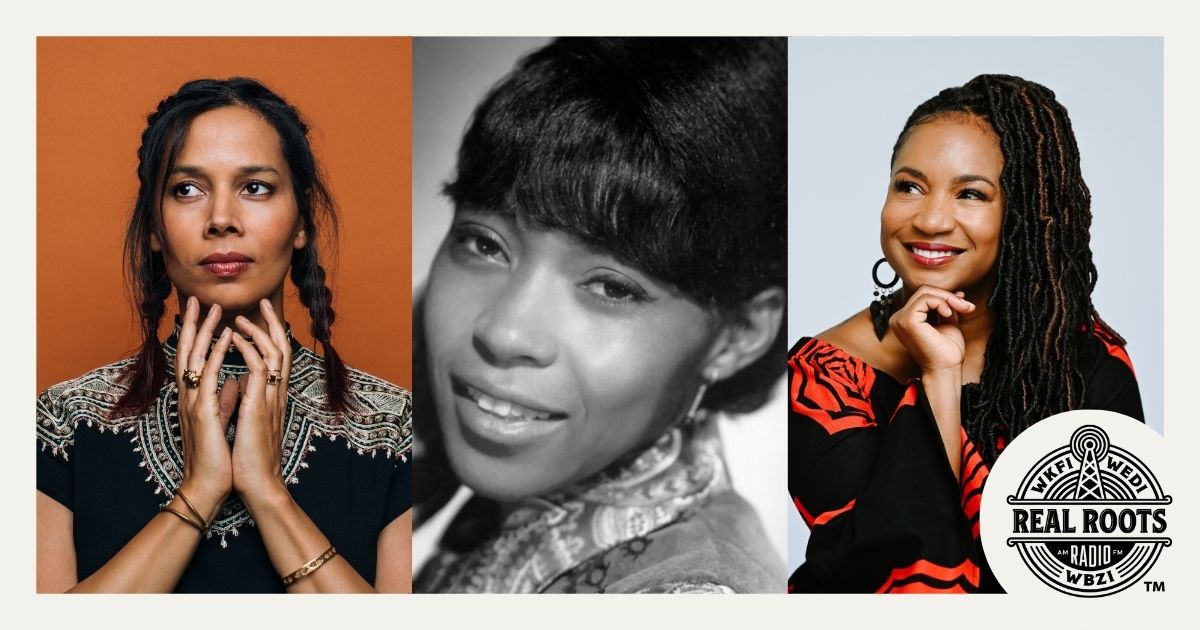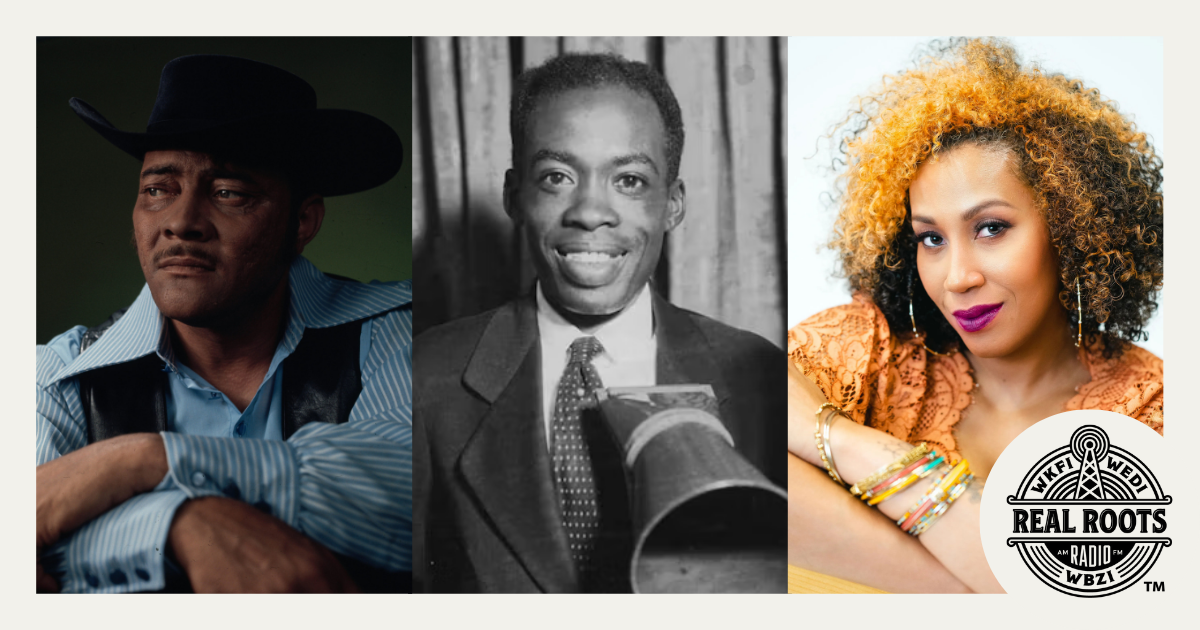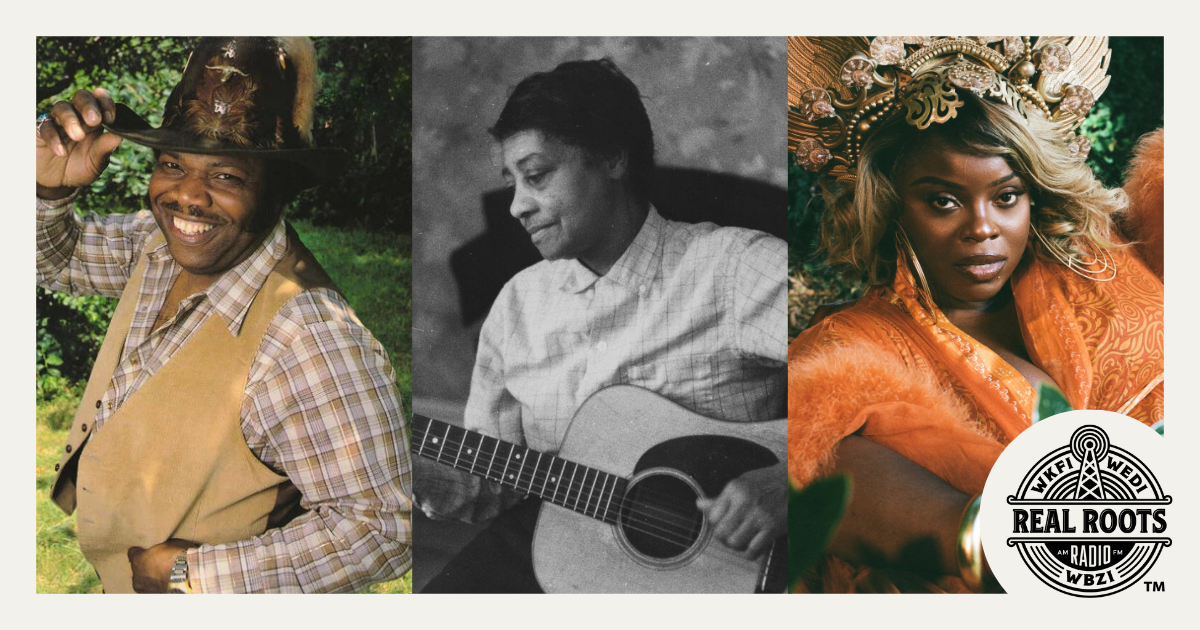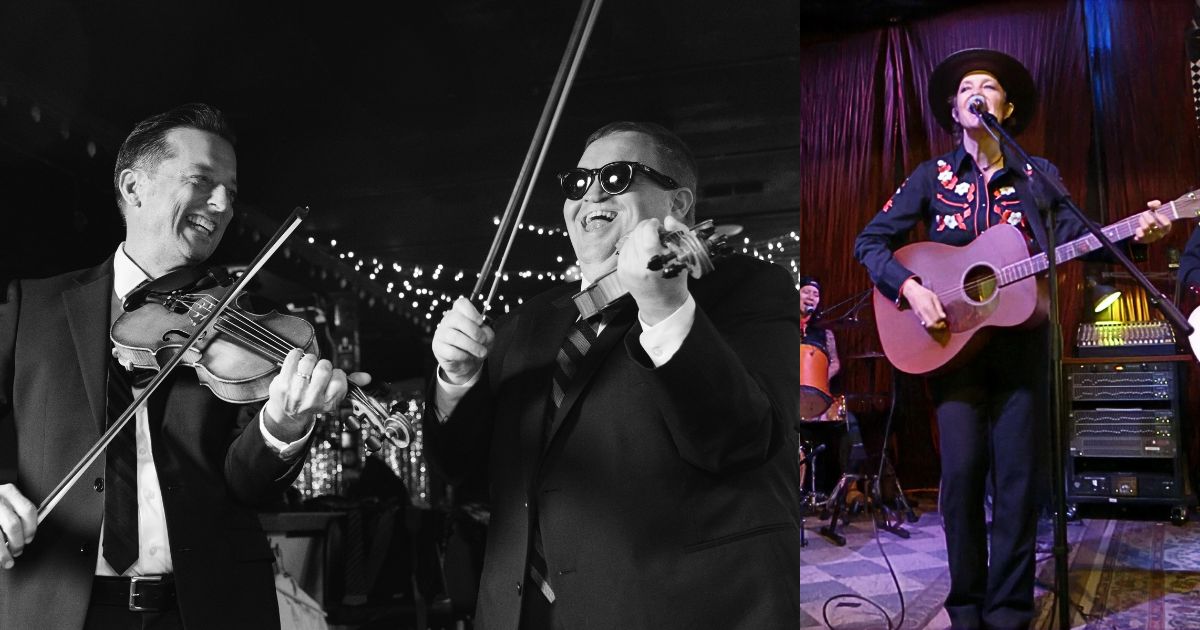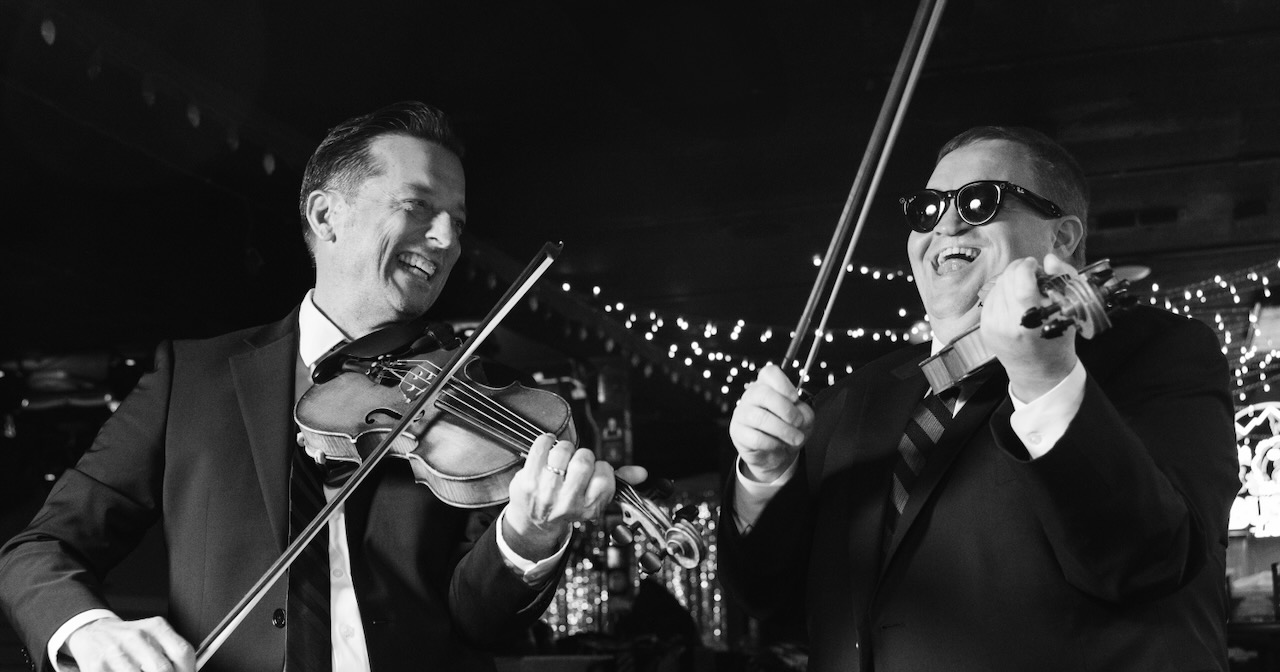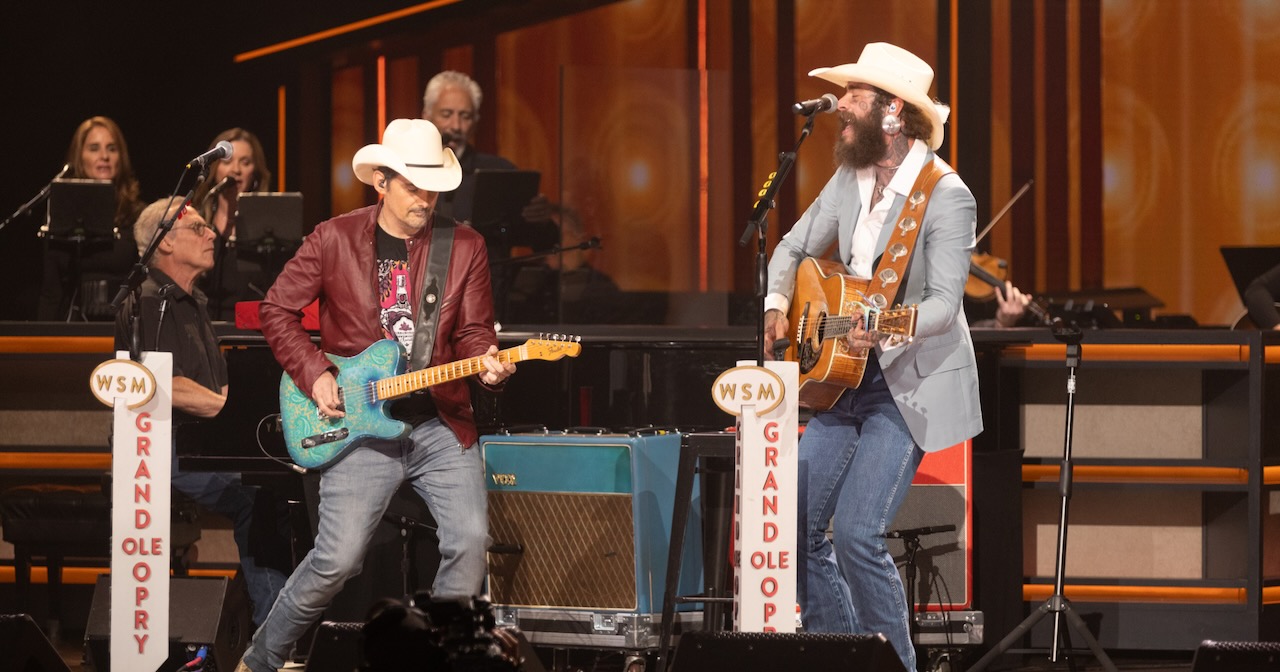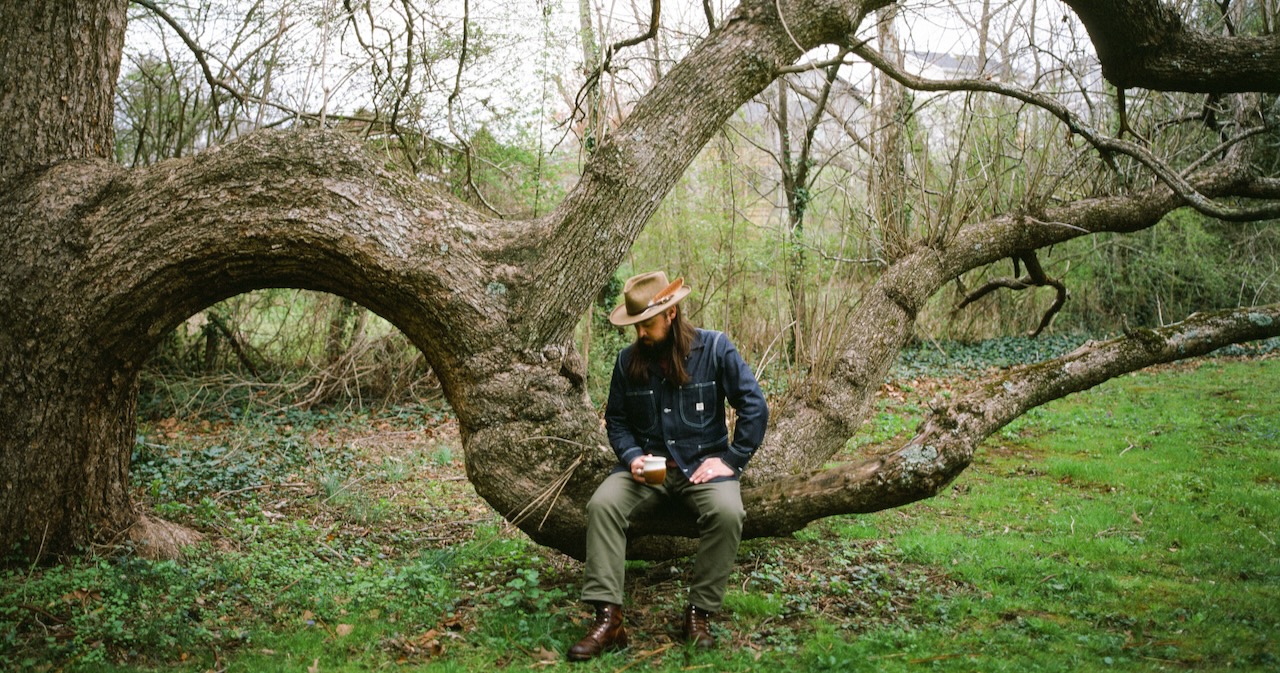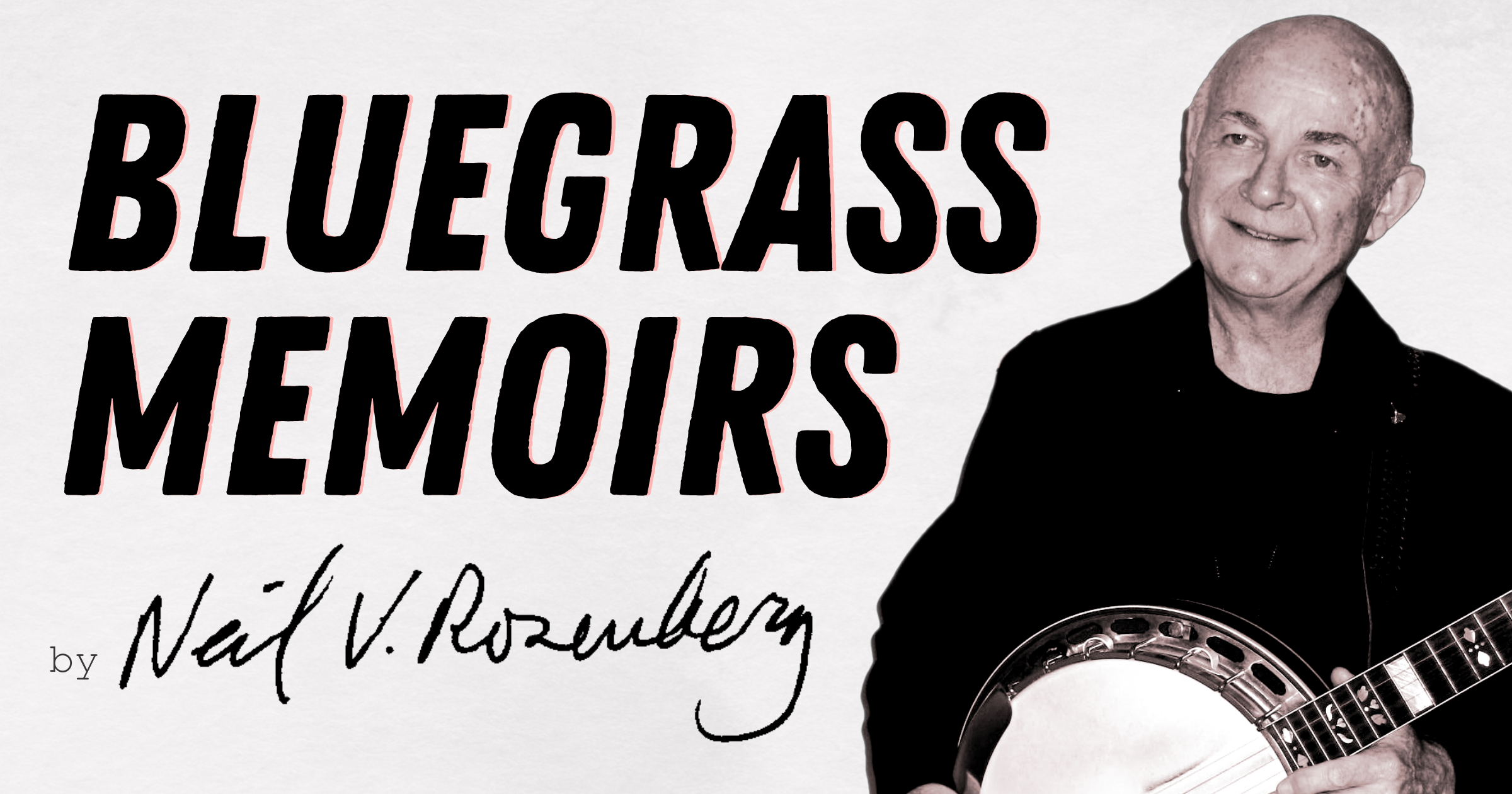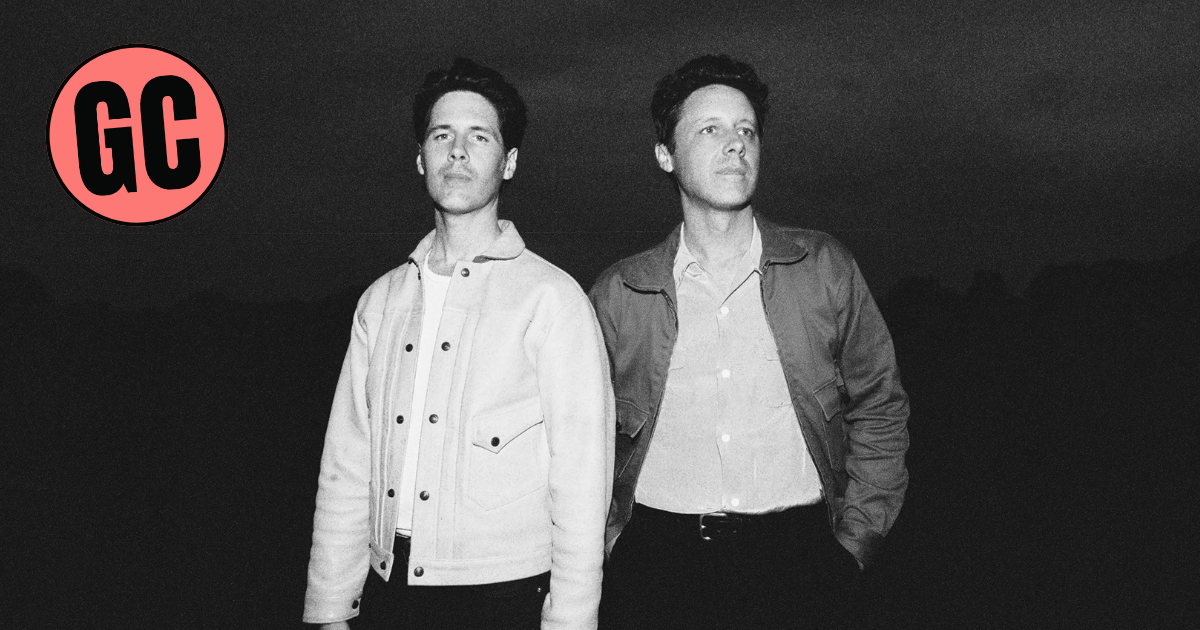To celebrate Black History Month – and the vital contributions of Black, Afro-, and African American artists and musicians to American roots music – BGS, Good Country, and our friends at Real Roots Radio in Southwestern Ohio have partnered once again. This time, we’ll be bringing you weekly collections of a variety of Black roots musicians who have been featured on Real Roots Radio’s airwaves. You can listen to Real Roots Radio online 24/7 or via their FREE app for smartphones or tablets. If you’re based in Ohio, tune in via 100.3 (Xenia, Dayton, Springfield), 106.7 (Wilmington), or 105.5 (Eaton).
American roots music – in any of its many forms – wouldn’t exist today without the culture, stories, skills, and experiences of Black folks. Each week throughout February, we’ll spotlight this simple yet profound fact by diving into the catalogs and careers of some of the most important figures in our genres. For week three of our celebration, RRR host Daniel Mullins shares songs and stories of Linda Martell, B.B. King, Miko Marks, Darius Rucker, and Rhiannon Giddens. Be sure to check out the first week and second week of the series, too.
We’ll return for one last edition next Friday to bring you even more music celebrating Black History and the songs and sounds we all hold dear. Plus, you can find a full playlist with more than 100 songs below from dozens and dozens of seminal artists, performers, songwriters, and instrumentalists from every corner of folk, country, bluegrass, old-time, blues, and beyond.
Black history is American roots music history; the two are inseparable. As we celebrate Black History Month and its legacy, we hope you’ll join us in holding up and appreciating the artists who make country, bluegrass, blues, folk, and Americana the incredible and impactful genres that they are today.
Linda Martell (b. 1941)
She was a trailblazer, a pioneer, and a voice that country music wasn’t ready for – but she made sure they heard her anyway!
Linda Martell, the first commercially successful Black female country artist, broke barriers in the late 1960s with her soulful voice and undeniable talent. In 1969, she made history with her hit song “Color Him Father,” reaching the Top 25 on the country charts before the release of her debut album – Color Me Country on Plantation Records — resulting in two more charting singles. She became the first Black woman to perform on the Grand Ole Opry, making a dozen appearances on the historic radio program and appearing as a special guest on television programs like Hee Haw, proving country music is for everyone.
Despite her success, the industry wasn’t kind. Racism and label conflicts cut her career short, leaving her influence overlooked for decades. She would spend many of those decades settling into domestic life, working a variety jobs including as a school bus driver. Still, her legacy lives on, inspiring a new generation of Black country artists. She is an influence on many African American country artists today, including Mickey Guyton. When Rissi Palmer began her program on Apple Music Radio, it was intentionally named “Color Me Country” after Martell’s historic album. As she puts it, she was “paying homage to the foundation on which my house is built, and that is Linda Martell.”
In 2021, Martell was recognized with CMT’s Equal Play Award and has had an even greater spotlight shone on her groundbreaking work after she made guest appearances on Beyoncé’s Cowboy Carter album, resulting in Martell’s first GRAMMY nomination at age 83. Thankfully, Linda Martell is finally getting the recognition she deserves. Her story is one of resilience, talent, and breaking down barriers—one song at a time.
Suggested Listening:
“Color Him Father”
“Before the Next Teardrop Falls”
B.B. King (1925 – 2015)
Let’s talk about a blues icon who found inspiration in country music – B.B. King! Born on a Mississippi plantation in 1925, B.B. grew up listening to blues. But did you know he also had a love for country music? As a young man, he was inspired by the guitar playing of country stars and tried to emulate the sound of a crying steel in his bluesy pickin’ style with his guitar, Lucille. He would frequently collaborate with country music stars both on stage and in the recording studio, including on his album, Deuces Wild, which featured appearances from Willie Nelson and Marty Stuart.
He performed at Willie’s FarmAid, on the GRAMMYs with Keith Urban, and even appeared on the popular That Nashville Music TV Show with Jerry Reed. In the ’90s, the hit all-star album Rhythm, Country & Blues closed with a legendary collaboration between B.B. King and George Jones on the old story song, “Patches.”
B.B. King proved that great music knows no boundaries. Blues, country, rock and roll – it’s all about storytelling from the soul and letting the good times roll! B.B. King was inducted into the Rock & Roll Hall of Fame in 1987. He passed away in 2015 at the age of 89.
Suggested Listening:
“Patches” (featuring George Jones)
“Let the Good Times Roll” (featuring Brad Paisley)
Miko Marks (b. 1973)
She’s breaking barriers, blending genres, and bringing a fresh voice to country – meet Miko Marks. Born in Flint, Michigan, Marks has been redefining country since the early 2000s. She was named Best New Country Artist in 2006 by New Music Weekly and won several awards at the Independent Music Awards in the early aughts as well. With a voice that’s equal parts soul, blues, and traditional country, she has a compelling sound full of power and conviction.
After years of industry struggles, Marks focused on her role as a mother for the next decade-plus. She mounted a powerful comeback with her 2021 album, Our Country, earning critical acclaim and recognition from Rolling Stone and NPR. The equally impressive follow-up, Feel Like Going Home, was released in 2022. She was named one of CMT’s Next Women of Country that same year.
Miko’s music speaks of resilience, hope, and inclusivity, carving a space for new voices in country. Her release Race Records features her take on country classics from The Carter Family, Willie Nelson, and more. From performing at the Grand Ole Opry to rocking major festivals, Miko Marks is a name you need to know. If you haven’t heard her yet, now’s the time!
Suggested Listening:
“Tennessee Waltz”
“Freeway Bound”
Darius Rucker (b. 1966)
From Hootie & the Blowfish to country superstardom, Darius Rucker has done it all. This GRAMMY-winning artist first made waves in the ’90s by leading popular alt-rock band Hootie & The Blowfish, which he helped found while attending the University of South Carolina. They scored half a dozen Top 40 hits, including “Hold My Hand,” “Let Her Cry,” and “Only Wanna Be With You.” There were seeds even then of his future country success, especially with the band’s bluegrass-flavored “Desert Mountain Showdown” from their Musical Chairs album.
Rucker began pursuing a country career in 2008. His debut country single, “Don’t Think I Don’t Think About It,” made history as he became the first Black artist in over 25 years to top the country charts. He was named CMA’s New Artist of The Year in 2009, making him only the second African American artist to win a CMA award – the first being Charley Pride. He would join the Grand Ole Opry in 2012 as only the third Black member of country music’s oldest institution.
He has continued to release many country hits, including nine chart-toppers. In 2013, he released the biggest song of his career, his take on an Old Crow Medicine Show song, “Wagon Wheel.” This number one hit is only the fourth country song to be RIAA-certified Diamond (for 10 million units) and earned Darius Rucker a GRAMMY Award for Best Country Solo Vocal Performance, making him only the third Black artist to win a country vocal performance GRAMMY. With his distinctive voice, heartfelt lyrics, and undeniable charm, Darius Rucker continues to break barriers and bring fans together. Whether it’s rock, country, or beyond, one thing’s for sure – this guy’s got soul.
Suggested Listening:
“Don’t Think I Don’t Think About It”
“If I Told You”
Rhiannon Giddens (b. 1977)
From the rolling hills of North Carolina to the world stage, Rhiannon Giddens is a musical force re-centering American roots music. A singer, songwriter, multi-instrumentalist, and historian, Giddens brings the forgotten voices of history back to life one song at a time. After leading the GRAMMY-winning old-time band, the Carolina Chocolate Drops, she has focused on her solo career for now more than a decade.
Rhiannon blends folk, blues, gospel, country, Celtic influences, and more into her dazzling brand of American roots music, all while shining a light on Black contributions to the American musical landscape. Her voice? Soulful. Her banjo? Revolutionary, as she is a recipient of the Steve Martin Prize for Excellence in Banjo and Bluegrass. Giddens has also earned MacArthur Genius honors, collaborated with folks like Elvis Costello, Eric Church, and Gillian Welch, written ballet music, and even composed a Pulitzer Prize-winning opera! (She did study opera at Ohio’s Oberlin College after all.) She has even written several children’s books based off some of her original songs.
Recently, Giddens has partnered with fellow Carolina Chocolate Drops co-founder Justin Robinson to shine a light on fiddle & banjo music from North Carolina. Whatever she sets her sights on, Rhiannon Giddens tackles it head on, inspiring us all in the process.
Suggested Listening:
“Julie”
“Don’t Let it Trouble Your Mind”
“Hook and Line”
Want more Good Country? Sign up on Substack for our monthly email newsletter full of everything country.
Listen to Real Roots Radio online 24/7 or via their FREE app for smartphones or tablets.
Photo Credit: Rhiannon Giddens by Ebru Yildiz; Linda Martell courtesy of the artist; Miko Marks by Karen Santos.
